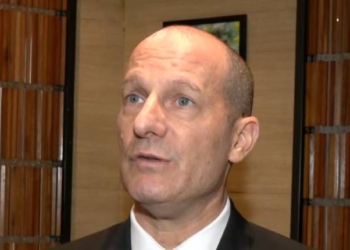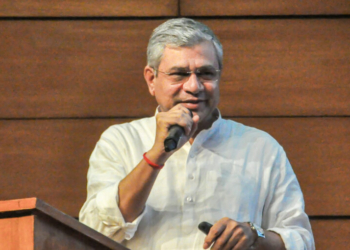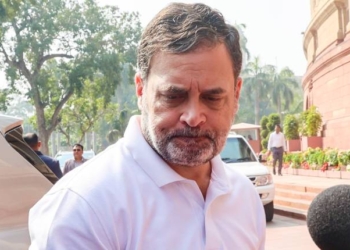New Delhi: The government on Monday said that the decision of Taiwanese giant Foxconn to withdraw from its semiconductor joint venture (JV) with Vedanta has no impact on India’s semiconductor goals.
Both Foxconn and Vedanta have significant investments in India and are valued investors who are creating jobs and growth, said Union Minister of State for Electronics and IT Rajeev Chandrasekhar.
“It was well known that both companies had no prior semiconductor experience or technology and were expected to source Fab tech from a tech partner,” he said in a tweet.
While their JV VFSL had originally submitted a proposal for 28nm fab, “they could not source appropriate Tech partner for that proposal,” the minister informed.
Earlier, the Taiwanese chip-making giant announced that it has withdrawn from a joint venture with India-based industrial giant Vedanta.
Foxconn was supposed to execute a $19.5 billion semiconductor joint venture with metals to oil conglomerate Vedanta.
Foxconn and Vendanta had signed a MoU in 2022 to establish semiconductor and display production parts in Gujarat.
“Foxconn has determined it will not move forward on the joint venture with Vedanta,” the company said in a statement, without elaborating over the matter. It maintained that the withdrawal matter is settled between the two companies.
However, Vedanta said it will go ahead with the project.
“Vedanta reiterates that it is fully committed to its semiconductor fab project and we have lined up other partners to set up India’s first foundry. We will continue to grow our Semiconductor team, and we have the license for production-grade technology for 40 nm from a prominent Integrated Device Manufacturer (IDM),” said the company.
According to Chandrasekhar, Vedanta has recently submitted a 40nm fab proposal backed by tech licensing agreement from a global semiconductor major, which is currently being evaluated by Semicon India Tech Advisory group.
“It is not for the government to get into why or how two private companies choose to partner or choose not to but, in simple terms, it means both companies can and will now pursue their strategies in India independently, and with appropriate technology partners in Semicon and electronics,” said the minister.
India is just getting started on semiconductor manufacturing locally, he added.
(IANS)














